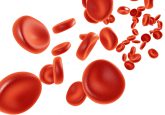Salivary biomarkers discovered for early detection of oral cancer

Researchers at the CEU Cardenal Herrera University (Valencia, Spain) have conducted a systematic review and meta-analysis of the salivary biomarkers that show the highest efficacy for the early detection of oral cancer in different clinical trials. It is hoped that early detection of these biomarkers will contribute to earlier treatment, before tumors are formed.
The results, published in the Journal of Oral Pathology and Medicine, evaluated the efficacy of the three most promising types of salivary biomarkers for the early detection of oral cancer, originating from carcinomas of squamous cells.
The biomarkers investigated include two types of cytokines, two markers present in mRNA and two more in miRNA, for which further research is required. The results of 17 clinical trials found both mRNA biomarkers to be the most efficient for the early detection of oral squamous cell carcinoma and of neck and head cancer.
Head researcher Verónica Veses (CEU Cardenal Herrera University) commented: “Detection of this type of squamous cell cancer in the surface of the mouth essentially depends of the visual examination on behalf of oral health professionals. This is why it is important to find new diagnostic methods to help with accurate early detection. Specially, if we take into account that oral cancer is the most common of the tumors in the head and neck, and which is increasingly prevalent among the young population due to the consumption of tobacco and alcohol.”
Sources: Gaba FI, Sheth CC, Veses V. Salivary biomarkers and their efficacies as diagnostic tools for oral squamous cell carcinoma: systematic review and meta‐analysis. J Oral Pathol Med. 2018;00:1–9 (2018); http://ruvid.org/ri-world/researchers-detect-the-most-efficient-salivary-biomarkers-for-detecting-oral-cancer/



